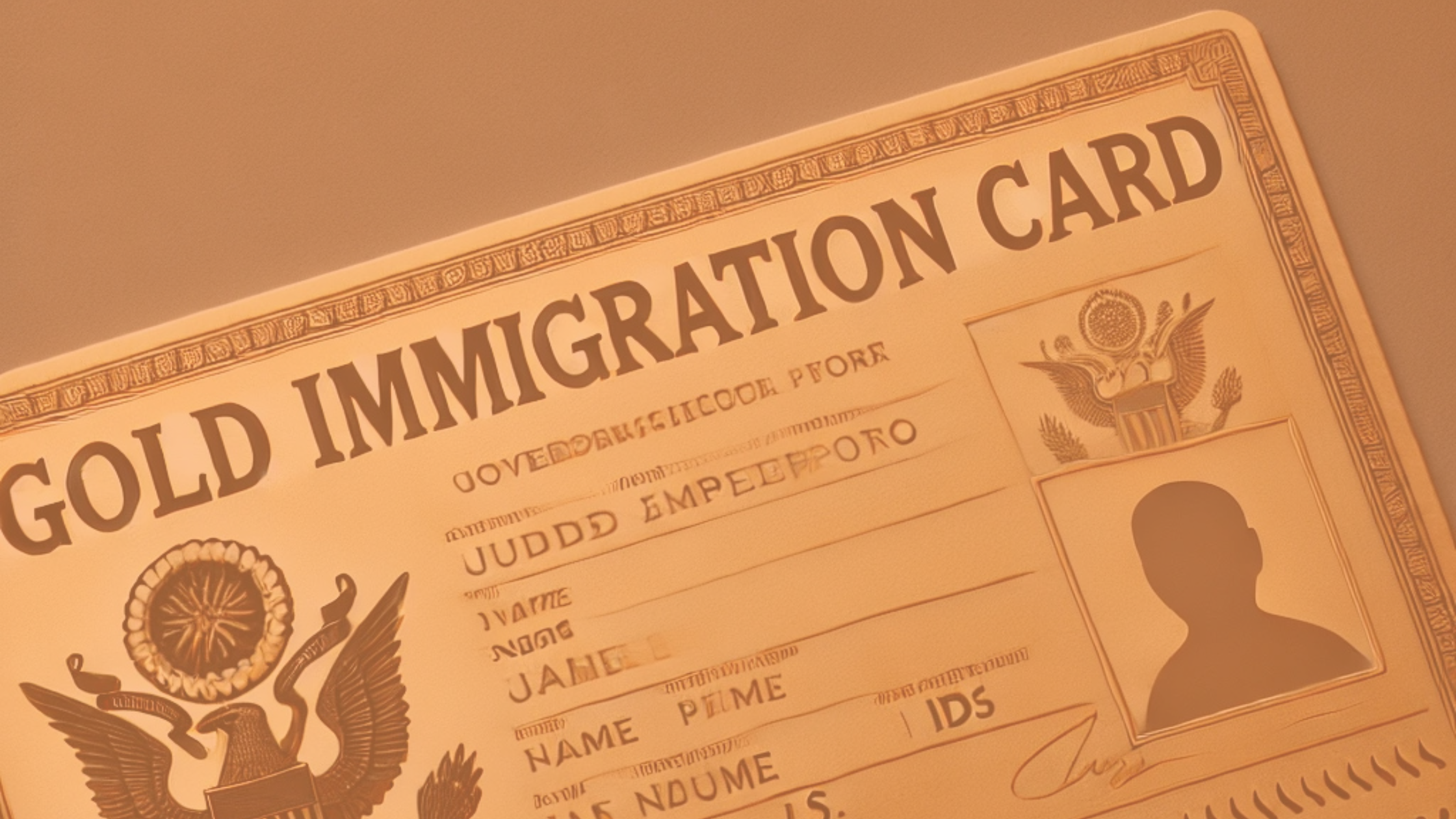The EB-2 visa offers a compelling opportunity for professionals with advanced degrees or exceptional ability to secure permanent residence in the United States. For foreign nationals in technical, academic, business, or creative fields, it opens the door to career advancement, long-term stability, and lawful immigration status.
The EB-2 category also includes a unique option known as the National Interest Waiver (NIW), which allows qualified individuals to self-petition without an employer sponsor. For many researchers, entrepreneurs, and innovators, the NIW removes a major barrier and places more control in the applicant’s hands.
Here you'll find the qualifications, application steps, and strategic nuances of the EB-2 process—helping both employers and individuals better understand how to pursue this green card category successfully.
Strategic Counsel That Elevates Your EB-2 Petition
Even highly qualified applicants can run into delays or denials due to technical errors or insufficient documentation. Pollak PLLC helps professionals and businesses navigate every stage of the EB-2 process with clarity, consistency, and strategy.
Guidance for Both Employer and Self-Petitioners
Whether you're filing an employer-sponsored EB-2 petition or pursuing a National Interest Waiver, Pollak PLLC tailors the application to fit your specific background, qualifications, and timeline. From preparing job descriptions to assembling academic and professional records, the firm provides strategic oversight at every phase.
Minimizing Delays and Anticipating Hurdles
Every EB-2 case is different. Pollak PLLC helps clients gather the right evidence from the outset, reducing the risk of Requests for Evidence (RFEs), petition denials, or delays in priority date progression. The firm also helps NIW applicants meet all three prongs of USCIS’s legal standard, translating complex careers into compelling legal arguments.
Who Qualifies for the EB-2 Visa?
To qualify for the EB-2 category, applicants must meet one of two main eligibility paths: advanced degree or exceptional ability. Each path has distinct requirements, but both demand thorough documentation and careful petition preparation.
EB-2A: Advanced Degree Holders
EB-2A is for professionals with either a U.S. advanced degree (master’s or higher) or a foreign equivalent. A bachelor’s degree plus at least five years of progressive experience in the field may also qualify. This pathway is commonly used for engineers, physicians, scientists, teachers, and other professionals in highly skilled roles.
The offered position must require an advanced degree, and the applicant must meet that requirement at the time of filing. Educational equivalency evaluations may be necessary for foreign degrees.
EB-2B: Individuals With Exceptional Ability
Applicants under the EB-2B category must show “exceptional ability” in the sciences, arts, or business. This does not mean Nobel-level recognition—but it does require sustained achievement beyond what is normally encountered in the field.
USCIS provides a list of evidence types, such as:
- Academic records or certifications
- Letters from industry experts
- Published material about the applicant’s work
- Salary records reflecting above-average compensation
While not all criteria must be met, the cumulative evidence must demonstrate that the applicant stands apart from their peers.
What Is the National Interest Waiver (NIW)?
The National Interest Waiver is a powerful option within the EB-2 category that allows individuals to self-petition. This means no employer sponsorship, no job offer, and no PERM labor certification is required—making the process more flexible and accessible for independent professionals.
Understanding the Three-Prong NIW Test
To qualify, an NIW petitioner must demonstrate that:
- Their work has substantial merit and national importance
- They are well-positioned to advance the proposed endeavor
- Waiving the job offer and PERM requirement benefits the United States
Pollak PLLC helps clients translate their work—whether in biomedical research, renewable energy, education reform, or public health—into a narrative that satisfies all three prongs.
Who Typically Qualifies for NIW?
NIW is commonly used by:
- Scientists and researchers
- Entrepreneurs developing high-impact startups
- Physicians working in underserved areas
- Engineers contributing to U.S. infrastructure or innovation
The focus is not just on the applicant’s past achievements, but also on the future benefit to the U.S. If the endeavor supports national priorities, it may qualify even without institutional funding or commercial backing.
Step 1: PERM Labor Certification (For Employer-Sponsored Petitions)
If the EB-2 is filed with employer sponsorship and not under the NIW route, the employer must complete the PERM labor certification process. This step ensures that no qualified U.S. worker is being displaced.
Prevailing Wage and Recruitment Requirements
The employer must first obtain a prevailing wage determination from the Department of Labor. Then, they must carry out a recruitment campaign that includes newspaper advertisements, job postings with the state workforce agency, and internal company notifications.
Each U.S. applicant must be reviewed fairly and, if rejected, the employer must document legitimate, job-related reasons. The process must be transparent and well documented, as USCIS may review these steps during adjudication.
Filing ETA Form 9089
If no suitable U.S. workers are found, the employer files ETA Form 9089 with the DOL. A certified PERM application becomes the basis for the subsequent I-140 petition. Errors in recruitment or wage calculation can derail the case, which is why legal oversight is critical.
Step 2: Filing Form I-140 With USCIS
Form I-140, Immigrant Petition for Alien Worker, is the formal request to USCIS to grant the applicant a green card based on the EB-2 classification.
Documenting Qualifications and Employer Eligibility
For employer-sponsored petitions, USCIS will evaluate whether the job offer matches the PERM labor certification, whether the employer can pay the stated wage, and whether the foreign worker meets all requirements listed in the PERM.
For NIW petitions, the I-140 must include a full explanation of how the applicant satisfies the three-prong test. Pollak PLLC drafts legal memos that organize evidence, highlight the applicant’s qualifications, and tie the proposed endeavor to national interests.
Premium Processing Options
Certain EB-2 I-140 petitions are eligible for premium processing. This service allows USCIS to adjudicate the petition in 15 calendar days for an additional fee. Pollak PLLC helps clients decide whether premium processing will benefit their strategy based on visa availability and timing goals.
Visa Bulletin and Priority Dates
Even with an approved I-140, applicants cannot move forward until a visa number becomes available. This is determined by the Visa Bulletin, published monthly by the Department of State.
How the Visa Bulletin Works
Each EB-2 petition receives a priority date, which is usually the date the PERM was filed (or I-140 filing date for NIW cases). The Visa Bulletin indicates which priority dates are currently eligible for further processing.
Applicants from countries with high demand—especially India and China—may face years-long wait times, even with an approved I-140.
Strategic Filing and Timing
Pollak PLLC monitors priority date movement closely. The firm advises clients when to prepare adjustment filings and how to stay compliant while waiting. For eligible cases, concurrent filing may also be an option, allowing Form I-485 to be submitted at the same time as the I-140.
Step 3: Adjustment of Status or Consular Processing
Once the priority date is current, applicants must complete the final stage of the EB-2 process—either through adjustment of status or consular processing. This step is where lawful permanent residence is formally granted.
Adjustment of Status (Form I-485)
Applicants already in the U.S. may file Form I-485 to adjust their status to permanent resident. This process includes biometrics, a medical exam, and sometimes an interview. Applicants may also receive work authorization and advance parole while the green card is pending. In many cases, the ability to stay in the U.S. during this time is critical to maintaining job continuity, family unity, and immigration compliance.
Consular Processing for Overseas Applicants
If the applicant resides outside the U.S., consular processing is required. This involves filing Form DS-260, submitting civil documents, completing a medical exam, and attending an interview at a U.S. consulate. Any past visa issues or legal concerns may be reviewed during this stage.
Pollak PLLC assists with both processes, preparing clients for interviews and helping them compile the necessary supporting materials to avoid delays. The firm also provides guidance on navigating appointment backlogs, document authentication, and pre-interview readiness to ensure every detail is addressed.
Why Timing, Documentation, and Strategy Matter
Even highly qualified applicants can face challenges. Delays are often the result of inconsistent filings, missing evidence, or failure to meet legal thresholds.
Common Triggers for RFEs and Denials
Requests for Evidence may be issued when USCIS doubts the legitimacy of the job offer, the sufficiency of qualifications, or the national interest claim in an NIW. These inquiries slow the process and add legal complexity.
How Pollak PLLC Mitigates Risk
By preparing comprehensive petitions from the outset, Pollak PLLC helps avoid unnecessary scrutiny. The firm reviews all supporting documents, ensures consistency across forms, and anticipates USCIS concerns before they arise.
Build Your EB-2 Strategy With Pollak PLLC
The EB-2 process is a strong option for professionals with advanced degrees or exceptional ability—but success depends on preparation, legal strategy, and timing.
Pollak PLLC offers strategic support for both employer-sponsored and NIW self-petitions. From determining eligibility to final green card approval, the firm provides expert legal guidance that helps clients avoid delays and build a path to permanent residence with confidence.
To explore whether the EB-2 visa is right for you or your organization, contact Pollak PLLC online today to schedule a confidential consultation. Services are available in English, Spanish, and other languages by request.
Pollak PLLC is an award-winning immigration law firm with offices in Dallas, Texas, and Fort Lauderdale, Florida. Contact us at info@pollakimmigration.com or call 214-307-5510 today to schedule a consultation to discuss your options. You can also see updated information on our Pollak PLLC Facebook page.




%20Expedite%20It.webp)